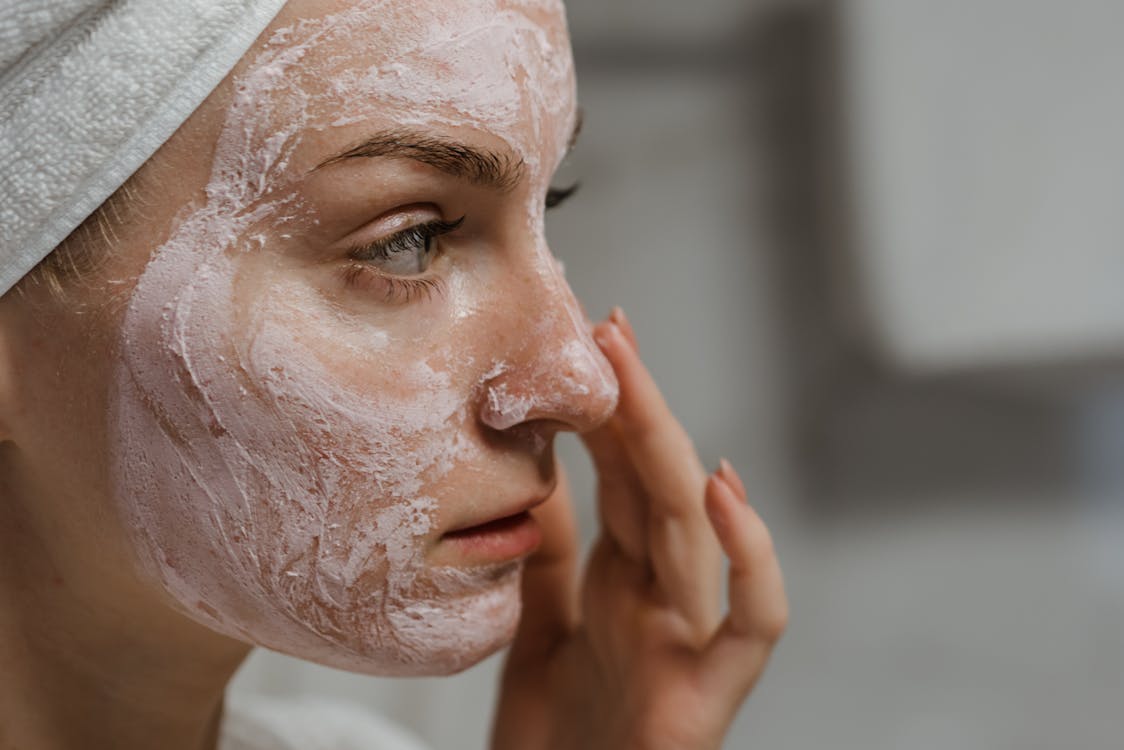Transform Your Skin with these Best Skincare Acids
6 minuteRead

In the ever-evolving zone of skincare, one category has taken the front seat and changed the way we approach our daily routines: skincare acids. These remarkable skincare products have emerged as the secret weapons to achieving radiant, flawless skin. From alpha hydroxy acids (AHAs) to beta hydroxy acids (BHAs) and beyond, these heroes are here to transform your skincare game. With the right acids in your corner, you can bid farewell to dullness, imperfections, and uneven texture, welcoming a radiant, revitalized complexion that's ready to rock the world. Let's dive deep into the different types of skincare acids you can include in your daily beauty regime:

Before we begin, let's learn the correct way to include these skincare acids into your daily routine:
Start Slowly: Introduce one acid at a time and allow your skin to adjust. Begin with a lower concentration and gradually increase as your skin becomes accustomed to it.
Patch Testing: Before applying any acid to your face, do a patch test on a small area of skin to ensure you don't have an adverse reaction.
Alternate with Care: Some acids can be used on the same day, while others are best used on alternate days. For example, use AHAs in the morning and BHAs in the evening, or alternate different acids throughout the week.
Sun Protection is Non-Negotiable: Acids can make your skin more sensitive to the sun, so sunscreen becomes your steadfast companion. Opt for broad-spectrum SPF to shield your newly rejuvenated skin.
Consult a Professional: If you're new to skincare acids or have specific skin concerns, consulting a dermatologist or skincare professional can guide you toward the best acid choices for your unique needs.

Hyaluronic Acid:
Hyaluronic acid, or HA for short, might sound like something cooking up in a laboratory, but it's actually a naturally occurring substance in our bodies. Primarily found in our skin, HA plays a crucial role in maintaining hydration and tissue integrity. However, our HA levels decline as we age, leading to moisture loss, fine lines, and wrinkles. The real magic of hyaluronic acid lies in its unique ability to hold up to 1000 times its weight in water. Imagine a sponge that can soak up moisture from its surroundings and bind it to your skin, creating a plumping and hydrating effect. This is precisely what HA does, helping to maintain the skin's suppleness and youthful glow. The standout feature of hyaluronic acid is its exceptional hydrating prowess. By attracting and retaining moisture, HA ensures your skin remains well-hydrated, reducing the appearance of dryness, flakiness, and dullness. As HA replenishes moisture and boosts skin elasticity, it can minimize the visibility of fine lines and wrinkles. This makes it an ideal addition to your anti-ageing skincare routine. HA not only hydrates but also fortifies the skin's natural barrier. A strong skin barrier is vital for warding off environmental aggressors and maintaining overall skin health.
Salicylic Acid:
Salicylic acid is a beta hydroxy acid (BHA) known for its remarkable exfoliating and anti-inflammatory properties. It's oil-soluble, which means it can penetrate the pores deeply, making it a go-to ingredient for tackling stubborn acne, blackheads, and whiteheads. Unlike their alpha hydroxy acid (AHA) counterparts, BHAs like salicylic acid work not only on the skin's surface but also within the pores, making them particularly effective for those struggling with oily and acne-prone skin. This powerful ingredient targets acne at its root, literally. Its ability to dissolve excess oil, unclog pores, and exfoliate dead skin cells reveals fresher, healthier skin beneath. Regular use of salicylic acid helps prevent new breakouts from forming and reduces the appearance of existing blemishes, leaving you with a smoother and more even complexion. Salicylic acid not only fights acne but also doubles as an effective exfoliant. Unlike harsh physical exfoliants that can cause micro-tears in the skin, salicylic acid gently dissolves the bonds between dead skin cells, allowing them to slough off naturally.

Lactic Acid:
Lactic acid, a gentle exfoliant, is not just another product in skincare; it's backed by solid science. As an AHA, lactic acid works its magic by dissolving the bonds between dead skin cells, effectively removing the dull and tired top layer. This gentle exfoliation process not only reveals fresher skin underneath but also promotes cell turnover, helping to fade dark spots, fine lines, and even acne scars over time. One of the standout features of lactic acid is its gentle nature. Unlike some harsh exfoliants that can leave your skin red, irritated, and flaky, lactic acid is well-tolerated by most skin types, including sensitive skin. Lactic acid doesn't just stop at exfoliation. It's a hydration hero too. Lactic acid has a unique ability to attract and retain moisture, making it an excellent choice for those seeking hydration alongside exfoliation. So, if you're tired of choosing between smoothness and hydration, lactic acid swoops in to save the day. Lactic acid, also, stimulates collagen production, helping to plump up your skin and minimize the appearance of wrinkles and fine lines.
Niacinamide:
Niacinamide, also known as Vitamin B3 or nicotinamide, is a water-soluble vitamin that holds the potential to transform your skin's destiny. While you might be familiar with its role in maintaining overall health, its skin-loving properties have gained widespread recognition. Whether you're battling blemishes, striving for a more even skin tone, or seeking a radiant complexion, niacinamide is the answer to your skincare prayers. This superstar ingredient helps regulate sebum production, preventing your pores from becoming a breeding ground for acne-causing bacteria. It also boasts anti-inflammatory properties, soothing existing breakouts and redness, leaving you with skin that's calm and collected. It also, supports the production of collagen and elastin, the dynamic duo responsible for maintaining skin's firmness and elasticity. Wrinkles, fine lines, and sagging skin beware – niacinamide is here to keep you at bay.

Glycolic Acid:
Glycolic acid belongs to the alpha hydroxy acid (AHA) family, a group of water-soluble acids. Imagine your skin as a work of art covered by a thin layer of dust and debris. This accumulation can lead to a dull complexion, clogged pores, and a lacklustre appearance. Here's where glycolic acid steps in as a skilled restorer, gently removing the buildup and unveiling the masterpiece underneath. Unlike physical exfoliants that can be abrasive, glycolic acid offers a chemical exfoliation that dissolves dead skin cells without the need for scrubbing. This means no micro-tears and a more even exfoliation process. Glycolic acid has the potential to unclog pores, helping to prevent blackheads and whiteheads. It also has a role in minimizing the appearance of acne scars over time.
Alpha Arbutin:
Alpha Arbutin is yet another magical skincare ingredient which has gained popularity in skincare due to its ability to effectively address skin pigmentation issues and promote a more uniform skin tone. One of the key reasons Alpha Arbutin stands out is its capacity to inhibit the production of melanin, the pigment responsible for skin colouration. When melanin production is excessive or unevenly distributed, it can result in dark spots and hyperpigmentation. Alpha Arbutin targets existing dark spots and works to prevent new ones from forming, making it a valuable addition to any skincare routine for those aiming to achieve a more radiant and uniform complexion. Unlike some other skin-lightening agents, Alpha Arbutin is considered to be relatively gentle on the skin, making it suitable for various skin types, including sensitive skin. Alpha Arbutin plays well with other skincare ingredients, making it an excellent addition to a comprehensive skincare routine. It can be used alongside other brightening agents, antioxidants, and moisturizers to enhance its efficacy.
Write, Record and Answer! Consume Unlimited Content! All you need to do is sign in and its absolutely free!
Continue with one click!!By signing up, you agree to our Terms and Conditions and Privacy Policy.










